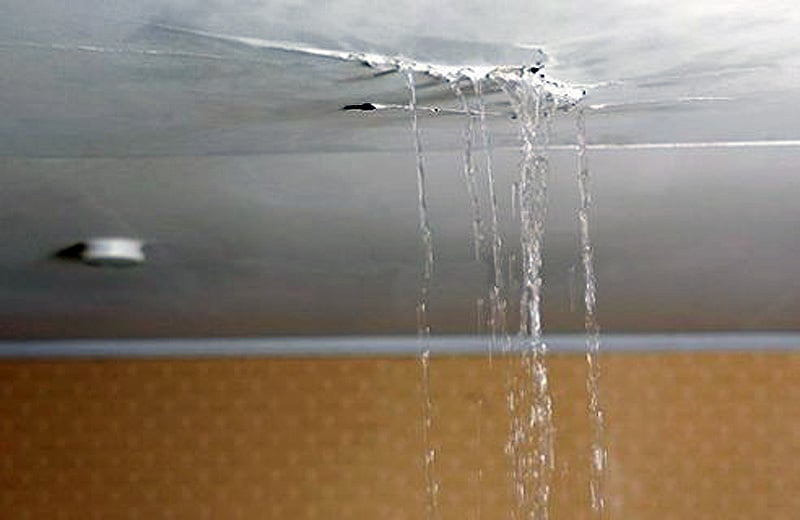Understanding the Six Most Common Water Leak Sources in Your Home
Understanding the Six Most Common Water Leak Sources in Your Home
Blog Article
Are you currently hunting for content on How to Find Water Leaks?

Leakages not only create waste of water yet can likewise cause unneeded damage to your home and promote undesirable natural development. By recognizing and also looking for day-to-day situations that cause leaks, you can shield your house from future leaks and also unnecessary damages.
Immediate temperature adjustments.
Extreme temperature level changes in our pipelines can trigger them to increase as well as contract suddenly. This growth and tightening may trigger cracks in the pipelines, especially if the temperature level are below freezing. It would certainly be best if you kept an eye on exactly how your plumbing works. The existence of the previously mentioned scenarios frequently suggests a high risk.
Rusty water systems
As time goes by, your plumbing system ages and rust such as corrosion might start eating away the pipelines. This might be the root cause of staining or warping on your water pipes. This asks for an inspection with your plumber quickly. If our plumbing system is old, think about changing the pipes because they go to a greater risk of corrosion than the newer versions.
Malfunctioning Pipeline Joints
The factor at which your pipes connect is frequently the weakest link in the waterline. Pipe joints can weaken gradually, causing water leakages. However, the majority of pipeline joints are not quickly visible. If you have noisy pipes that make ticking or banging noises, particularly when the hot water is switched on, your pipeline joints are probably under a great deal of stress. It is advisable to have your plumber inspect your system once a year.
Trespassing roots
Most water leakages start outside the residence instead than inside it. You might notice damp patches or sinkholes in your yard, and also that may imply that tree origins are getting into water lines causing water to permeate out.
Poor Water Connectors
Sometimes, a leakage can be triggered by loose hoses as well as pipes that supply your devices. Generally, shifting is what causes the loose water Links. You might locate in the case of a cleaning device, a hose might spring a leak as a result of shaking throughout the spin cycle. In case of a water connections leak, you might notice water running straight from the supply line or puddles around your home appliances.
Obstructed Drains
Clogged drains pipes might be aggravating and inconveniencing, yet they can sometimes end up causing an overflow leading to burst pipes. Maintain eliminating any kind of products that may decrease your drains pipes that could clog them to prevent such aggravations.
All the above are root causes of leaks but not all water leaks arise from plumbing leakages; some leakages may originate from roof leaks. All leakages need to be repaired promptly to stay clear of water damage.
Leakages not just create waste of water but can likewise trigger unnecessary damage to your home and promote undesirable natural development. By looking as well as recognizing for everyday situations that trigger leaks, you can secure your residence from future leakages and also unnecessary damage. Today, we will look at six leak triggers that might be creating your pipelines to drip.
At times, a leak can be caused by loose hose pipes as well as pipes that supply your home appliances. In situation of a water links leakage, you might see water running straight from the supply line or pools around your devices.
How To Check For Water Leak In Your Home
How To Check for Leaks
The average household's leaks can account for nearly 10,000 gallons of water wasted every year and ten percent of homes have leaks that waste 90 gallons or more per day. Common types of leaks found in the home are worn toilet flappers, dripping faucets, and other leaking valves. These types of leaks are often easy to fix, requiring only a few tools and hardware that can pay for themselves in water savings. Fixing easily corrected household water leaks can save homeowners about 10 percent on their water bills.
To check for leaks in your home, you first need to determine whether you're wasting water and then identify the source of the leak. Here are some tips for finding leaks:
Take a look at your water usage during a colder month, such as January or February. If a family of four exceeds 12,000 gallons per month, there are serious leaks.
Check your water meter before and after a two-hour period when no water is being used. If the meter changes at all, you probably have a leak.
Identify toilet leaks by placing a drop of food coloring in the toilet tank. If any color shows up in the bowl after 10 minutes, you have a leak. (Be sure to flush immediately after the experiment to avoid staining the tank.)
Examine faucet gaskets and pipe fittings for any water on the outside of the pipe to check for surface leaks.
Undetected water leaks can happen without the home or business owner even realizing. If you suspect a water leak, but not able to find the source. It is time to contact a professional water leak detection service, The Leak Doctor.
How To Find a Water Leak In Your Home
https://www.leakdoctor.com/blog/How-To-Check-For-Water-Leak-In-Your-Home_AE197.html

We had been made aware of that article on How to detect water leaks in your home from someone on our other domain. Feel free to set aside a second to promote this article if you enjoyed it. Thanks so much for going through it.
Click Here Report this page